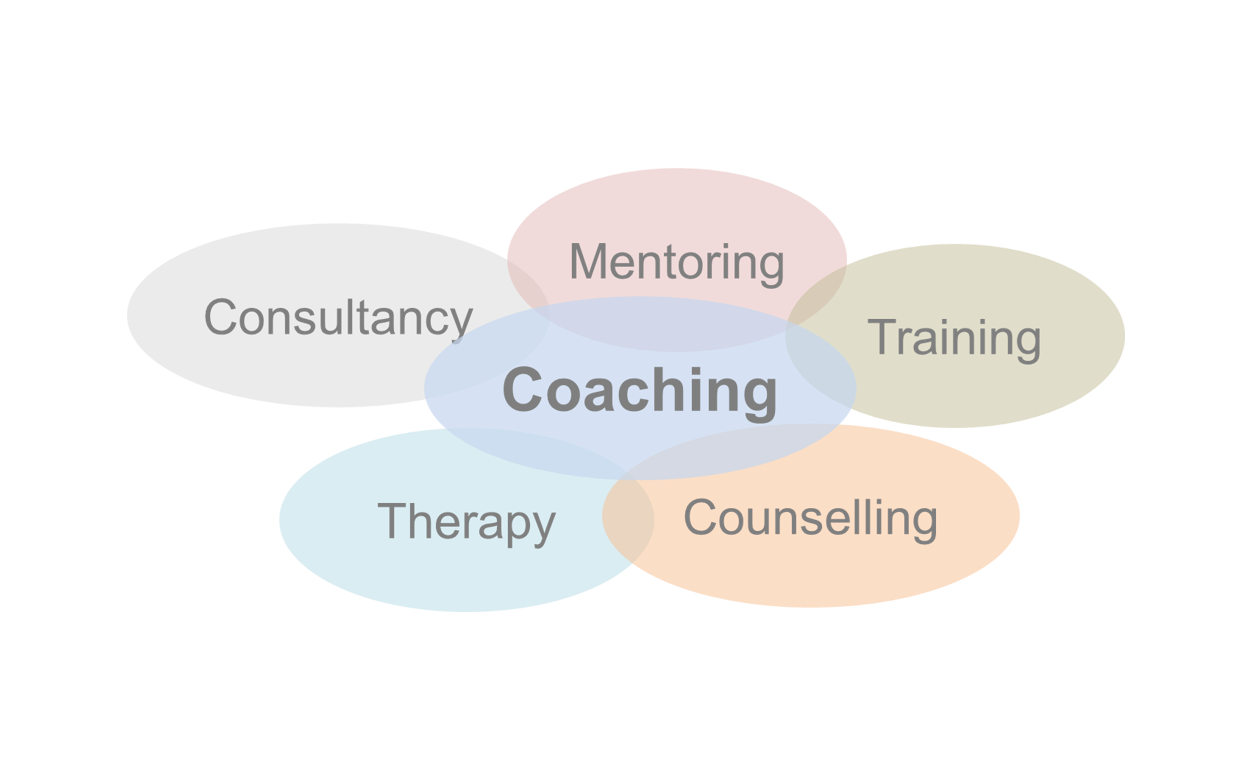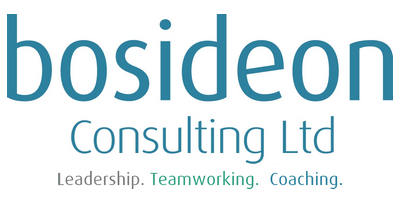Coaching is a useful route to self-development but choosing a coach can be tricky. However, as it can be useful that trick of being able to choose a coach is a handy professional skill. I’m going to address the “how” and “why” questions in reverse order but first I’m going to briefly consider what coaching is because if you don’t know what it is, it’s difficult to make decisions about it.
There is no single, wholly satisfactory definition of coaching. My working definition is:
“Coaching is a dialogue that leads to an intentional change of thinking and behaviour.”
Coaching’s Place in the Intervention Spectrum
 Coaching lies on a spectrum along with mentoring and training as well as counselling and therapy (among others). Drawing lines on this spectrum and saying “everything inside this line is coaching; everything outside is something else” is not useful; all employ similar skills, it is how those skills are deployed that differs. What is essential is that a coach knows the appropriate part of the spectrum to work in for what needs to be achieved and has an appropriate skill-set to work there.
Coaching lies on a spectrum along with mentoring and training as well as counselling and therapy (among others). Drawing lines on this spectrum and saying “everything inside this line is coaching; everything outside is something else” is not useful; all employ similar skills, it is how those skills are deployed that differs. What is essential is that a coach knows the appropriate part of the spectrum to work in for what needs to be achieved and has an appropriate skill-set to work there.
Organisations tend to have their own definitions of coaching which concentrate on what coaching is meant to achieve. According to the Ridler Report [1] the top 3 are:
- Increasing the coachee’s business performance (92%)
- Increasing the coachee self-awareness (92%)
- Developing the coachee’s leadership skills (91%)
Why Have a Coach?
It is a bit difficult to answer this question in the abstract. It is much easier to start with two more specific questions: what do you want to achieve and how will you measure it?
What do you want to achieve?
Coaching always has a purpose, a point, an agenda; most importantly, it’s your purpose, point or agenda. Even more specifically, you might ask:
- Is what I want to achieve developmental, ie. “I want to step up”? An example of this would be, “I want to be/have been promoted but need to improve my skills in a certain area to perform”.
- Is what I want to achieve exploratory, ie. “I’m not sure what to do next”? An example of this would be, “There is a business decision to be made and I need to explore the options”.
- Is what I want to achieve remedial, ie. “I’m getting something wrong”? An example of this would be, “My team aren’t performing the way I want them to”. (And if you blame your team you definitely need coaching.)
How will you measure it?
Measuring coaching is even trickier than defining it. Again according to the Ridler report, the top 3 ways organisations measure coaching effectiveness are:
- “Return on Expectations”, ie subjective evaluation by the organisation and the coachee on achieving the objectives.
- Pre- and post-coaching 360-degree reports.
- Coachee satisfaction: “I feel more confident about …” whatever the coaching objectives were.
How to choose
Coaching is an unregulated industry so there are no external guarantors of a coach’s abilities, you have to look for “markers” of competency. The best way to look for those markers is to ask questions. So you might ask:
- What is your training as a coach? The answer “I’ve been coaching all my life” probably means “I’m not trained”. Coaching is a skilled activity. Some people are naturals at it but everyone needs some training because you can mess someone up badly if you don’t know that there are dangers. If a coach is untrained and proud of it my suggestion is to walk away.
- What do you do best? If you are particularly looking for some mentoring as well you might add “In what industries have you coached? What additional skills and experience do you have?”
- Are you a member of a coaching association? Which one? (There are lots.) This is not necessarily a go/no go question but check the association out, particularly any framework of competencies they espouse, and see if these make sense to you. The association will probably have a Code of Ethics that their coaches should follow. This is important. If I am coaching you, we are setting out specifically to change your mind; I need to be ethical in what I do and I must have your permission to be involved in this. If they are not a member of an association, check for an equivalent ethical statement.
- Are you also accredited? Accreditation basically means that the coach has had to demonstrate their development and competence to an association.
- What coaching models do you use? Coaches that specialise in a single coaching model have to be very good at it and have to be very clear when they can coach someone and when they can’t. Otherwise there is a danger that they will interpret your situation to suit their model rather than being able to choose a model to suit your situation.
- How often are you supervised? Coaching supervision is a mixture of coaching and mentoring for the coach themselves. It is a sign that the coach takes their coaching seriously.
And finally …
The most important indicator of success in coaching is the strength of the coaching relationship, which in turn depends on you liking and trusting your coach. It’s hard work, you have to be committed to the change you want to bring about and you have to be prepared for unintended consequences.
[1] May 2016, 6th Ridler Report on Strategic Trends in the Use of Coaching
For more information, please email Charlie.
